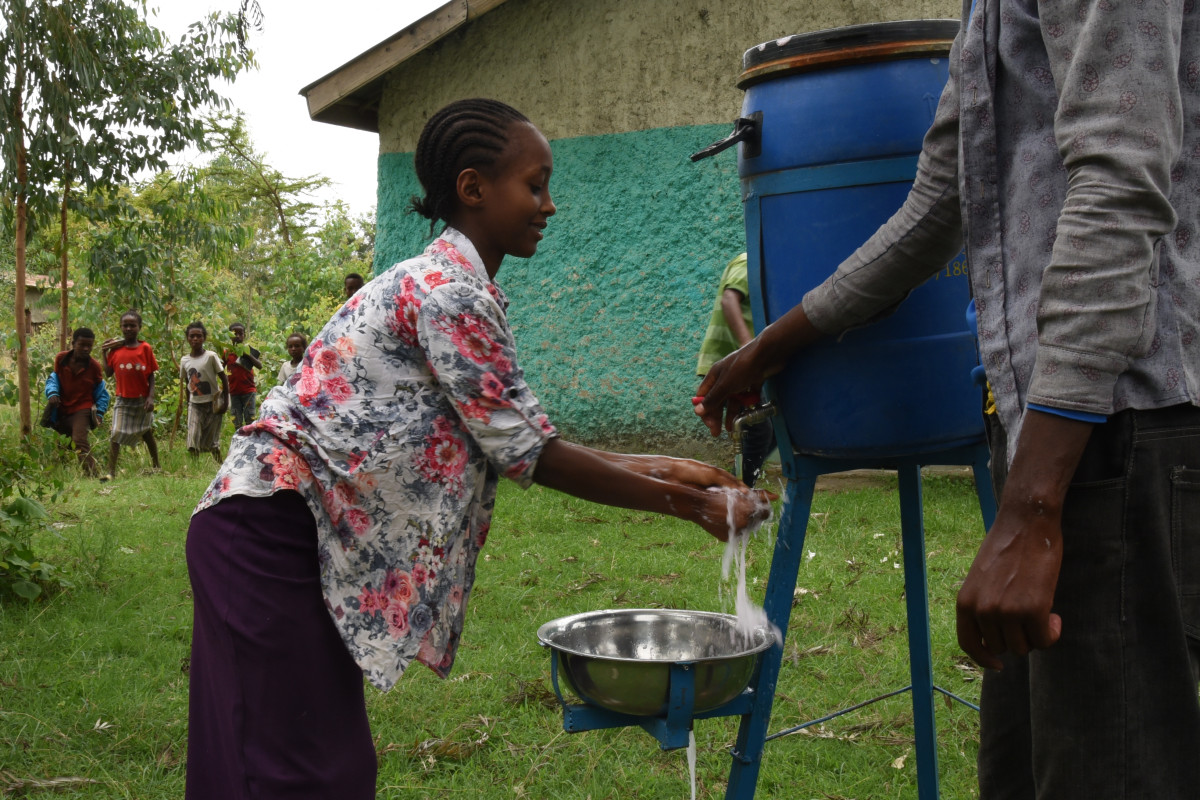Improving Hygiene, Sanitation, and Dietary Practices in Ethiopia
Published: Aug 13, 2024 Reading time: 4 minutes Share: Share an articleFor over 15 years, we have been helping improve health, nutrition, and hygiene in Ethiopia. These efforts continue in households, Health centers and schools in Hawassa Zuriya woreda. Students who avoided school due to inadequate latrines are now attending regularly.

Many Ethiopians lack access to safe drinking water and sanitation facilities, leading to widespread illness and disease. To address this, we are strengthening connections among government institutions to enhance the health system. We are upgrading hygiene and sanitation facilities in health institutions and schools and conducting training and community activities focusing on infection and malnutrition prevention. In Hawassa Zuriya, we assist 23 communities that frequently face infectious diseases and malnutrition due to unstable water supplies, inadequate hygiene and sanitation facilities, and dietary habits. Our teams assist them through training and equip health centres and schools with essential tools that help them reduce health challenges.
We work closely with Health Extension Workers (HEWs) and the Women's Health Development Army (HDA) –volunteers trained in the community-led total sanitation approach to encourage behavioural changes in villages. They run campaigns on nutrition, hygiene, and sanitation. HEWs and the HDA received training and conducted monthly community conversations to exchange updates and, recording the information in health posts.
With our approach, the community ensures sustainable improvements in public hygiene, and community mobilisation has led to the elimination of open defecation through education and sanitation facility construction. Through the close supervision of the HDA, in which each supervises 30 households, we encourage latrine construction and usage.
Danchlo Kayamu supervises 30 families, promoting environmental cleanliness, children's nutrition, and latrine usage. After training, she dug a latrine and later shared her knowledge with her neighbours.
Unsafe water supplies and a lack of sanitation facilities have severe health impacts. In Ethiopia, 60-80% of communicable diseases are due to limited access to safe water and inadequate sanitation. Environmental factors, including poor hygiene, contribute to 50% of malnutrition cases, highlighting the link between water, sanitation, health, and nutrition.
A December 2019 survey in Hawassa Zuriya found that about 70% of the population had access to sanitation facilities, but less than half of the households had latrines. Most of the existing latrines did not meet essential quality criteria.
We also address critical school needs. At Shamana Garmama primary school in Hawasa Zuria,, with over 1,500 students, we provided clean drinking water and built proper restroom facilities. Lediso, a member of the school WASH club, educates peers and communities, promoting proper latrine construction and maintenance. He is happy to have a clean latrine in his school, stating, "We can happily focus on our studies now since we have clean facilities."
The school director, Mr. Shimelis Gatiso, observes that new facilities have reduced absenteeism and dropouts that resulted from poor hygiene. Students who avoided school due to inadequate latrines are now attending school regularly. Bethelhem, a student and WASH club member, appreciates and is happy to use the new latrines. She says,
A survey revealed that only one in three residents of target localities practice basic hygiene like handwashing with soap. Few health centres have access to clean drinking water or waste management. We are supporting health facilities in 23 kebeles to promote hygiene and sanitation behaviours. In the Shamana Sefera health centre, we constructed latrines, provided water access, donated materials, and conducted training.
The Czech Development Agency supports our project, Improving Health, Hygiene, and Sanitation in Hawassa Zuriya, and supports approximately 170,000 people in Hawassa Zuria.



